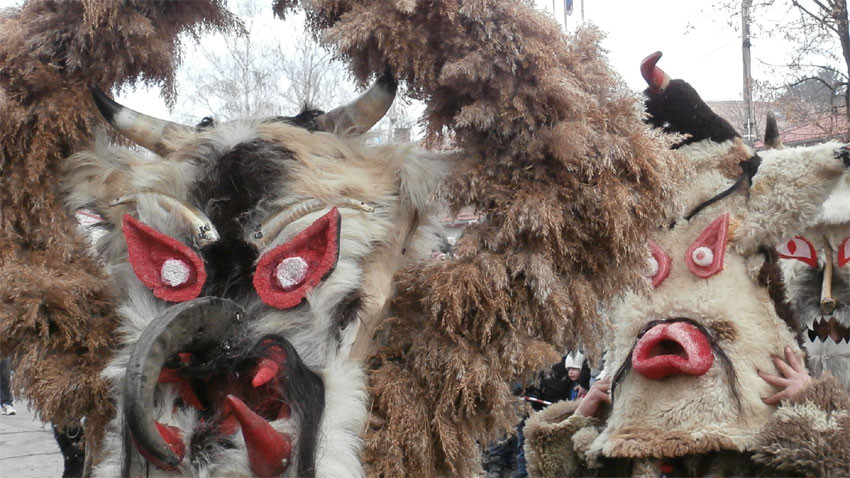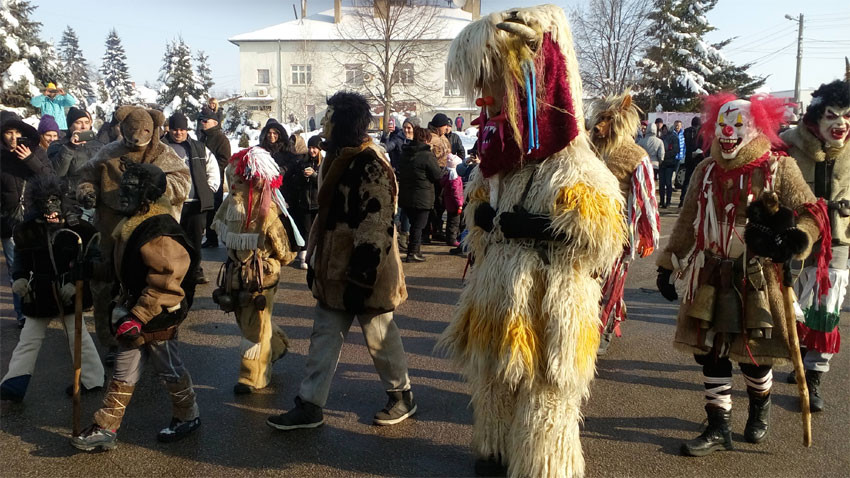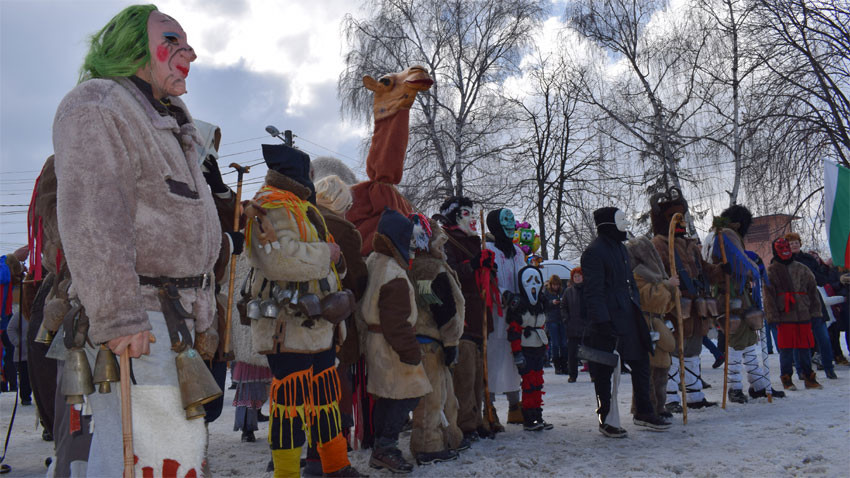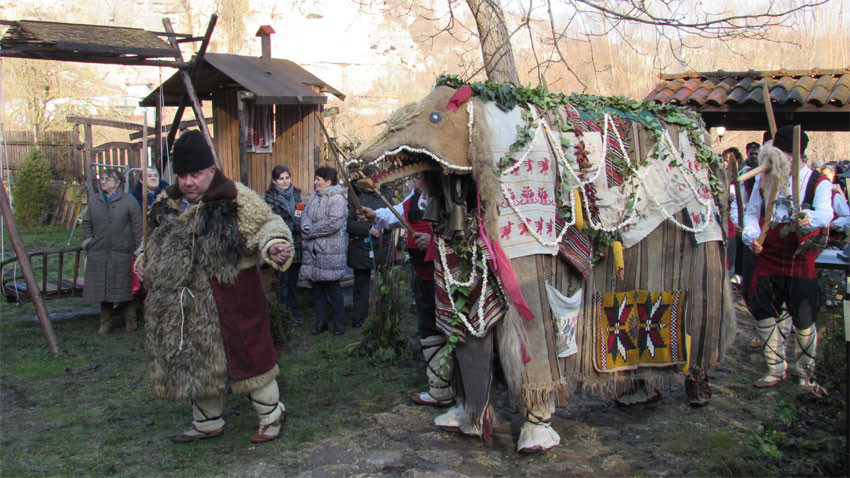
Each year around Ivanovden, which used to be marked on January 20, according to the old calendar, in many villages in the regions of Sofia, Rousse and Lovech a folk ritual known as Jamala is performed. It is a male feast and is part of the winter masquerade games in Bulgaria. According to some, the tradition was born during the times of Ottoman oppression. The inhabitants of the village of Voluyak near Sofia tell a story that once there was a great drought that lasted for years. People were terribly impoverished and desperate. But one day they saw an animal unknown to them coming from the nearby Lyulin Mountain. They followed the animal to the village square. There, the animal began to jump and play, and people played around it. So, joy eliminated the grief of the village, and the year was very fertile. In honor of this unknown animal, the people of Voluyak began making a mummer’s costume named Jamala. From then on, a group of men started visiting all the houses and play for health, fertility and to drive away evil forces.

In other villages the same custom is called “Camel” because it is believed that the camel is the animal that came from a faraway land to play for prosperity, for many children, and for health in every home. The group that accompanies the Jamala during the masquerade games includes the characters of grandparents, a doctor, a gypsy, a clerk, priest, and a musician who have their specific roles. All together they perform something like a theatrical play with a funny plot, saturated with action and aimed to create a cheerful mood in the audience. By the 1960s, the ritual had fallen into oblivion, but a group of people decided to restore it and awaken interest in it. Thus the holiday was preserved and is now performed in an authentic way in different places in Bulgaria.

For yet another year early in the morning of January 19a big male group will start their tour to all the houses of Dolni Bogrov. The group will be led by Ivan Radoykov Ivanov, who is among the oldest participants in the ritual, and remembers how it was restored in 1968 in his native village.
“In our community center in Dolni Bogrov we are very conscientious and the most important thing is that we preserve and perform our customs as our grandfathers did. We restored Jamal in 1968, and I took part in the first holiday as a mummer.
Later I participated as the camel driver, which is probably one of the toughest roles. As we go to visit the houses, the bride, bridegroom and the best men walk in front. They are followed by the priest and clerk, a doctor, a barber, camel driver and a bear that wrestles with people for health. We learned the custom from an old man from our village called Angel.

When the group visits a house the boys we call jamals enter first. They wear bells like the kukers and they chase evil forces away. Then the bride and groom enter the house kissing the landlord’s hand. This is a symbolic ritual that is performed for health. After all the houses are visited we all gather together and we perform a scene that recreates life in a family, starting with the wedding. We light a big fire and then jump over it, chasing the evil forces away from the village. With this ritual we participated in the Mummers Festival in Pernik and in 1978 we won the first prize in the competition program. This ritual was always performed on January 20 in Dolni Bogrov. We now change the date, but we always try to perform it close to the old-style Ivanovden.”
English: Alexander Markov
Photos: elinpelin.org and BGNES